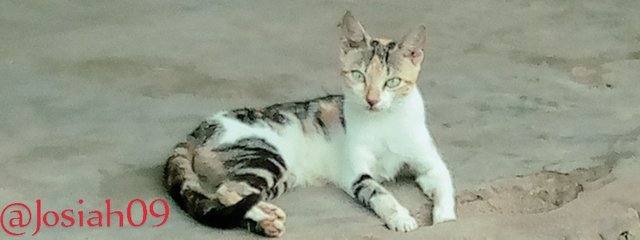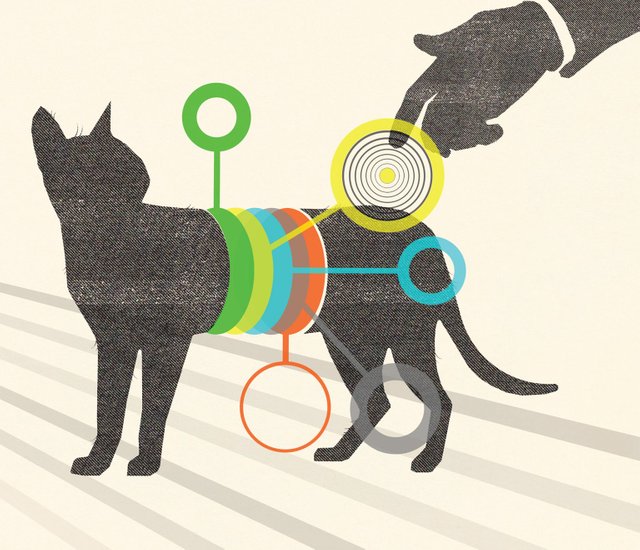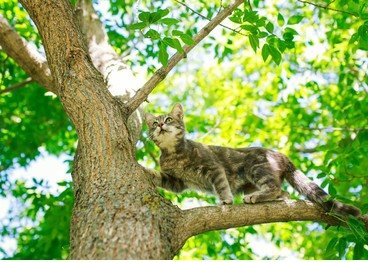QTHE CAT

Hello! Everyone.
Hope we all are doing fine, on my today's post I will discuss about CAT and what I have learn so far.
Aside from cat being my pet I came to discover a lot about cat. This post will explain deep and answer more than twenty questions that most people find difficult to answer. Below are the questions and it full explanation.
Are cats less domesticated than dogs? Are they becoming more domesticated over time?
Cats are far more similar to their wild ancestors than dogs are to wolves, so dogs are in that sense the more domesticated of the two species. As they adapted to living alongside humans, cats became more sociable with one another and much more accepting of people, but there is no evidence that they have changed much more than that over the past few thousand years.
Will cats, which require meat, eventually evolve to eat a broader array of foods as dogs do?
Cats and dogs belong to a group of mammals known as Carnivora, and the wild ancestors of both species dined primarily on meat. Recent DNA analyses indicate that over the course of their evolution, dogs have acquired more copies of the so-called amylase gene, which makes an enzyme that helps to break down starch. Having more copies of this gene has allowed dogs to eat a more omnivorous diet. In contrast, the cat family, known as Felidae, lost the genes that encode several key enzymes—including those that manufacture vitamin A, prostaglandins and the amino acid taurine—early in its evolution. Whereas dogs (and humans) can synthesize these substances from plant-based precursors, cats have to obtain them from meat. To expand their diet, cats would have to evolve physiological traits that allow them to synthesize these and other key nutrients from plant foods. This capacity has not emerged during the 10 million years of felid evolution, so it seems unlikely to arise spontaneously in our domestic cats.
Why do cats purr?
Cats purr because they have something to say, which roughly translated is “please keep still and pay attention to me.” Kittens purr to persuade their mothers to keep on nursing them, and pet cats purr when they want to be stroked. The vibrations emanating from the purr certainly have a calming effect on people. Yet sick cats will also purr as a cry for help. So purring doesn’t always mean “I’m happy.” Some researchers have claimed that the vibrations from purring might help heal bone damage in an injured cat.
How do they purr?
The purr is an unusual vocalization, made by rattling the vocal cords together rather than vibrating them by pushing air past them, which is how cats—and humans—generate all their other vocal sounds. That’s why cats can purr when they’re breathing in and breathing out. Most species of wildcats can purr, including the cheetah. The exceptions are the big cats—lion, tiger, jaguar and leopard—whose voice boxes are modified so that they can roar.
Why do house cats have so many vocalizations compared with wildcats?
House cats are much noisier than feral cats, although they have fewer vocalizations than some other species. The jungle cat from Asia, for example, has a couple more that are not in the house cat’s repertoire, namely the “ow” and the “gurgle.” The house cat’s characteristic sound, the meow, is hardly ever heard in feral cat colonies, except occasionally when mother cats are communicating with their kittens. Feral cats diligently monitor one another’s comings and goings, so they don’t need to announce their presence vocally. Cats that live with humans, however, learn that meowing is a good way of getting our attention: our pet felines often find that we have our noses buried in a book or a screen, so they meow to get us to acknowledge them. Some pets develop a “private language” of meows that only their owners understand, each signifying something different that the cat needs. Also, certain breeds are notoriously chatty, the Siamese in particular.
Do cats think of their owners as parents? Siblings? Friends?
By rubbing around our legs when they greet us, cats show that they regard us as friendly but at the same time slightly superior to them. When living in a family group, kittens rub on their mothers, females rub on males and smaller cats rub on bigger cats. The reverse rarely occurs—an indicator of the small imbalance of power in each of these relationships.
How can you get a cat to love you?
Cats naturally feel affection for those who feed, look after and play with them, although they don’t always make that obvious. Trust can be harder to win because some cats are just nervous. One trick is to always allow the cat to approach you rather than forcing yourself on the cat when you feel like it. When the cat does approach, reward it with a few treats and let it leave as soon as it wants to. You should find that it comes to you a little sooner, and stays for a little longer, each time.
Why do cats sometimes suddenly bite or scratch the person who is petting them?
You have probably missed the warning signs that the cat has had enough. Some cats, even if they enjoy being petted, also tire of it very quickly. Flattened ears and a slight twitching of the tail can signal that they have had their fill. If you have such a cat, try breaking off from stroking it every few seconds and allow it to move away if it wants to.
Can cats get jealous?
Research has demonstrated that dogs can get jealous, so cats probably can, too. For both species jealousy is an in-the-moment emotion they experience when they see that another individual is getting the attention they are craving: they don’t remember being jealous once the moment has passed. As with dogs, cats have a limited concept of time: they can learn to distinguish between different time intervals but only when these intervals are limited to a few seconds. Thinking back into the more distant past is probably beyond their abilities.
Do cats remember different people or just the people they see on a daily basis?
Scientists have not studied this specific trait directly, but cats do seem to forget other cats once they have been separated for a long time, so the same probably applies to people as well. Dogs, for whom humans are much more important, can remember people by their scent for months, probably years.
Do coat colors and patterns correspond to certain personality traits in cats?
Cat owners commonly believe that coat color can predict the personality of their pet, but there’s no evidence that this is universally true. Locally, a very successful male can produce a lot of kittens that both look like him and behave like him because of their shared genes, which might explain how people have come to associate coat color with personality. Among pedigree cats, the major breed types do have characteristic personalities: the so-called oriental breeds tend to be particularly active, the exotics more laid-back. Cats that are hybrids of domesticated cats and wildcats exhibit even stronger breed-specific personality traits. For example, Bengals, which are a cross between domestic cats and the Asian leopard cat, tend to be extremely adventurous and sleep for only about half the time that a typical domestic cat does.
Why do cats bring their kills to their humans?
It is tempting to see these kills as presents from our feline companions, but they are not intended that way. Cats take their kills somewhere safe before they eat them. If this location happens to be in or near the kitchen, they are automatically reminded that commercial cat food is much tastier than mouse, and hence they abandon their catch then and there.
Why do they knock objects off tables and shelves?
Some cats are just clumsier than others, and material possessions mean nothing to them. Others will bat items over the edge simply to get their owner’s attention. Sometimes they seem to do it for their own entertainment or because they have learned that this is a game that their owner seems to enjoy.
Do indoor cats suffer from not being able to go outside?
If a cat has lived indoors all its life, it probably doesn’t “miss” what it has never experienced. Outdoor cats that are suddenly confined do get stressed, however. All indoor cats should be given plenty of stimulation—hunting games using preylike toys are ideal.
Why do cats sometimes suddenly decide to run around like crazy for no apparent reason?
Cats can get quite frustrated if they are bored or if they are stressed, perhaps because they have just seen a rival cat through the window. Under such circumstances, the slightest movement, perhaps just a speck of dust caught in a shaft of light, can set them off. Regular play sessions can help dissipate all that energy and relieve any stress.
Why do cats love to climb into boxes, including ones that seem too small?
Cats like to feel well protected, especially when they intend to sleep, and cardboard cartons can be ideal for a secure nap. Why some seem to prefer too small boxes over just right ones is a mystery, though.
Why do cats climb to heights that they are subsequently afraid to jump down from?
Because cats’ claws face backward, they’re much more useful for running up trees than for climbing down. (The margay, a tree-dwelling South American cat, has double-jointed ankles and wrists that allow it to descend as easily as it ascends.) Inexperienced or frightened cats may go higher than they should. But they usually succeed in descending eventually because they have a reflex that enables them to fall safely, even from quite considerable heights. They stretch all four legs out sideways, so that the loose skin on their belly forms a kind of parachute. Then, a split second before reaching the ground, they push their feet downward and arch their back to minimize the shock of landing.
Why do some cats go crazy for catnip and others show no response at all?
The catnip response is a bit of an enigma because it consists of seemingly random segments of play (pouncing, clutching with the claws), socializing (cheek rubbing) and female sexual behavior (rolling onto the back, for example). Many cat species have this reaction to the herb, including lion, tiger, leopard and lynx. Yet not all individuals in these species show the response because it is controlled by a single gene that only about two thirds of cats carry [see “Catnip’s Magic,” below]. There is no evidence to suggest that cats that ignore catnip are deficient where play, socializing and sex are concerned, however. The catnip response may simply be an evolutionary accident.
Why do cats lick and chew plastic bags, power cords and other nonfood items?
Veterinarians have noted an unhealthy taste for plastics in some cats but have never convincingly explained it. Cats may be trying to alleviate stress. Among oriental cat breeds, adults commonly suck, chew and eat fabrics, especially wool, in response to stress. Also, kittens of all kinds that are weaned too early may develop the habit of suckling on a blanket, usually purring and kneading with their front paws at the same time, as if the blanket were their mother.
Why do they chew their fur?
There are two possible reasons for this behavior. One is itchy skin, possibly caused by fleas or other parasites, or an allergy. But persistent overgrooming on one spot or pulling out clumps of fur can also be signs of chronic stress, perhaps because of conflict with another cat in the house or in the neighborhood.
Why do cat feet sometimes smell like tortilla chips?
A common minor fungal skin infection, similar to athlete’s foot in humans, often produces this smell. Dogs may carry this fungus, too.
Why can’t domestic cats go without food for long, like their big cat cousins can? They get fatty liver disease in a couple of days.
All cats, big and small, can suffer from fatty liver disease, in which fat released from other parts of the body accumulates in the liver, blocking its ability to carry out key functions such as recycling red blood cells. This condition can occur as a result of cancer, diabetes or kidney disease, but it can also be triggered by the cat not eating for some reason (stress is a common cause in pet cats). It comes on much more quickly in obese cats, so it’s probably less common in big cat species simply because living in the wild they’re unlikely to be overweight.
Why are cats so finicky about food and their litter boxes? Why are they so sensitive to any change in routine?
Cats have much more exacting nutritional requirements than dogs do, so they have to be careful about what they eat. Also, as solitary hunters, their ancestors could afford to eat in their own good time. Dogs, in contrast, are descended from pack-hunting wolves, which evolved to eat quickly so they could grab their share of the kill. Cats also prefer to hide their feces, which would otherwise betray their whereabouts to prey and predators alike, hence their reluctance to use a dirty litter box. Cats are much more sensitive than dogs are to any change in their environment because they are territorial animals that get their sense of security from the place where they live. That’s why cats often try to get back to their owner’s previous home in the first few weeks following a house move.
Will cats really consume their deceased owners in some situations?
If they are literally dying of hunger, cats (and dogs) will eat anything available. I’m sure that they don’t mean to cause offense.
source

